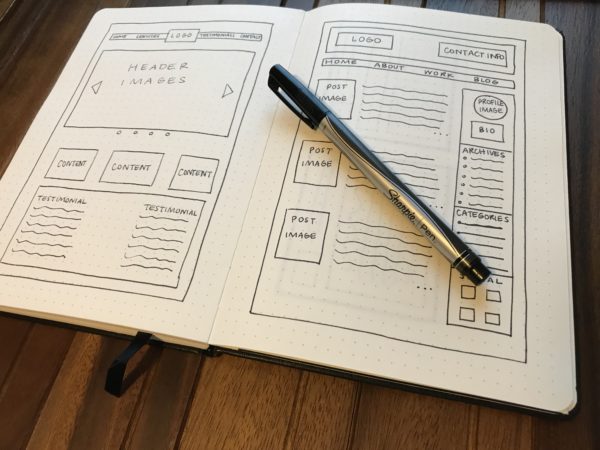No matter where you are at in business, your website will always be a foundation to all marketing. First impressions are important – people always tend to remember their first interactions with someone, in real life and online. For most people, especially potential clients, your website will be their first impression of your business, personality, and work. Therefore it is imperative that your web presence is clean, consistent and has a high level of usability.
Web Marketing Therapy helps clients optimize their marketing based on a five-factor success framework. Usability is one of them. Usability can have many different meanings, but today we’ll be covering three attributes of usability and how you can make sure your website implements them well.
Here are three questions to ask yourself while putting a website together (new site or redesign). It will help you make decisions regarding design, pagination, and what content should or shouldn’t be there.
- Are there too many words on this page? Every sentence should serve a purpose on your website. It’s very common for websites to have pages full of words that are doing nothing more than taking up white space. In the current day and age, people’s attention spans aren’t very long, and many people do not have the patience to be reading every single word they see on a screen. In fact, when most people are reading web pages, they’re really only looking at keywords, facts, and information, so it’s likely they’re already just skimming through the content anyway. If your website has a ton of extra fluff words, they’ll either a). Close the page entirely or b). Skim too fast to be able to process and see the main points before losing interest. To prevent this from happening, simply take out the needless words! You’d be surprised to see that when you get rid of the extra words surrounding the main idea you’re trying to get across, nothing is lost and people are more likely to be able to find exactly what they were looking for in the first place.
- Is my website easily navigable? Like we previously mentioned, attention spans are at an all-time low now that we have high-speed internet almost everywhere we go. People need to be able to find exactly what they’re looking for in less than 5 clicks. This practice will dictate how you decide to split up content into pages and the general organization of your website.Here are a few things to keep in mind to ensure that your users are able to easily maneuver your web space:
- It is very obvious what is clickable and what is not
- There is not too much clutter on the page that is more of a distraction than it is visually appealing (remember, everything on the page serves a specific purpose)
- Use a lot of headings to organize bodies of text. Keep them clear and concise, and close to the text it’s outlining.
- Is my website going to be memorable? Websites that we visit regularly all provide one common thing – they allow you to find exactly what you’re looking for with ease and have a consistent flow of content. All of the page headings match whatever words clicked on to get there, page content is broken into clearly defined areas and sections, and the text is formatted to support scanning rather than reading. Consistency is key in a lot of aspects of life, and your website is definitely one of them too.
Make the web experience for your potential customers and other viewers positive. Many people, myself included, will usually turn away from a company or service if they don’t have a solid website that can tell me what I’m looking for.
With the attributes of usability discussed here, both of those goals can easily be accomplished.

